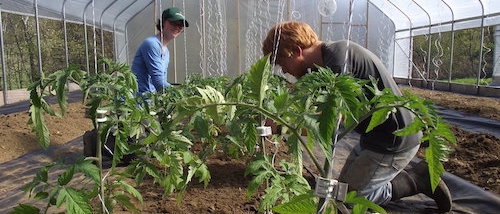A potentially important component of a successful farm’s business is working with wholesale buyers, such as chefs at restaurants, schools, institutions, and retail stores. While sales to wholesale buyers are often at a lower overall price point than those to “Direct to Consumer” outlets such as a CSA or a farmers market, wholesale can offer a greater volume of overall sales. This difference can make wholesale a comparatively more profitable part of a farm’s business if its wholesale operation is well planned and executed. An efficiently managed wholesale operation saves time and lowers overhead expense which can help a farm keep more of the sales volume as profit.
The 2015 Local Foods Marketing Practices survey by the USDA noted approximately 170,000 farms took part in “direct marketing” by various methods selling $8.7 billion worth of food (almost 90% of which was to a buyer within 100 miles from the farm). Even though just under half of the farms participating (46%) sold to chefs at restaurants and other wholesale buyers like schools and institutions, those sales accounted for almost two thirds (64%) of the $8.7 billion. This demonstrates the big opportunity that exists for sales through wholesale channels. A strong and growing demand for locally and/or farmer-sourced ingredients by chefs and wholesale buyers nationwide created this opportunity which has been building for the past several years.
The 2017 “What’s Hot” survey from the National Restaurant Association listed “Hyper local sourcing” as its #1 trend that “everyone is talking about.” Other “What’s Hot” categories, which round out the top 10, favor farms as well (see list below). Given the demand, there is a great opportunity for farms that are able to find and work with wholesale buyers in their area.
1. Hyper-local sourcing
2. Chef-driven fast-casual concepts
3. Natural ingredients/clean menus
4. Environmental sustainability
5. Locally sourced produce
6. Locally sourced meat and seafood
7. Food waste reduction
8. Meal kits (e.g. pre-measured/prepped raw ingredients for home preparation)
9. Simplicity/back to basics
10. Nutrition
Farms that have already found success with wholesale appreciate the larger volume of sales and order size. Don Cascun from Cascun Farms in Greene, New York, raises pastured poultry and works with a variety of chefs, institutions, and retail stores in his immediate area as well as in New York City. When asked why wholesale works for his farm Don says, “For us, wholesale quickly became the way to go. We experimented with direct to consumer sales in the beginning but the smaller order size was more time consuming and the higher price point we could sell our products at that way versus wholesale didn’t make up for it."
Alan Kauffman of Shibumi Farms in Princeton, New Jersey, which cultivates specialty gourmet mushrooms and also works with chefs and larger institutional buyers agreed, “For the amount of time and effort that it takes for me to spend all day at a farmers market, I can deliver to 15 different restaurants and know the products are sold before they leave the farm.”
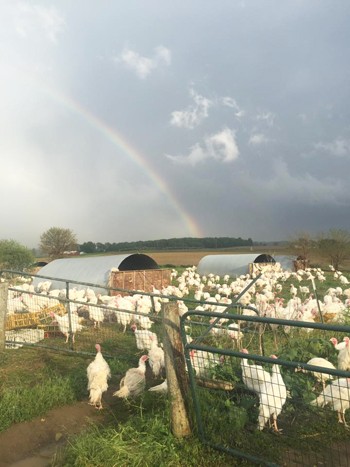
Wholesale may not be right for every farm. So, trying it out before scaling up or attempting to work with very large buyers can be a good strategy. Your farm can work with a few restaurants or one store, for example, without any changes to your workforce or output. Then later, if wholesale is right for you and you want to expand to more buyers, you can contemplate adding more staff (should they be needed for picking, packing, or delivery) or growing/raising more products. Also, be careful to have a sense of just how low you can price a product without losing money on the sale. The potential for big volume sales can be tempting and lead to the risk of overlooking price point altogether, but if you’re not making money on the sale it will ultimately be a negative for your business. Know your price “floor” and don’t be afraid to say no to a sale if it’s at a price point below your floor.
For these reasons and more, working with wholesale buyers is not without its challenges. This is where the efficiency part comes in. Being well organized with a plan in place for your wholesale operations even before you reach out to buyers is a great way to be on the right path from the start. This can help you avoid surprises along the way that can disrupt operations and negatively effect sales or profit.
With this in mind, many farm-focused organizations throughout the country have developed wholesale training courses that can help farms formulate a plan for doing wholesale that’s right for them. This includes the Baskets to Pallets Teaching Manual from the Cornell Small Farms Program, the Wholesale Success program at FamilyFarmed.org, and the Market Ready program out of the University of Kentucky. At FarmersWeb, we have created and made part of the free and paid account types the “FarmersWeb Guide to Working with Wholesale Buyers,” a preview of which is available at farmersweb.com. The guide offers tips and best practices on how farms across the country have successfully worked with wholesale buyers including what information you’ll need to have on hand when you reach out to buyers and the best time of the day to do so (not during meal service hours…).
Being prepared with a plan to manage your wholesale operations before you start as well as how best to manage orders and customers once you are up and running can go a long way to making your wholesale business an efficient one. Doing so will help you capture more wholesale sales dollars, profit, and will also help you work with more buyers overall.
With multiple buyers that place orders in different ways, order different products and at different times, and pay for them in different ways and on different schedules (including getting special pricing in certain circumstances), keeping a wholesale operation running smoothly can quickly get overwhelming. Doing so by pen and paper and e-mail often isn’t sufficient to keep things organized and prevent the wholesale business from getting bogged down. At FarmersWeb, we’ve developed software features to make it easier for farms to manage this process and the administrative tasks that come along with it to help ensure a smooth operation.
Your farm should gather the relevant production method, certification, and product information (and a way to neatly present it to buyers) before reaching out to new customers. Once you’ve developed your wholesale product availability (including case sizes, quantities available and pricing), letting buyers access this up-to-date information online when it’s convenient for them can keep them informed without having to contact you directly. This can be the case even if they will want (or you will want them) to contact you by phone, text, or e-mail to actually place an order.
Another helpful tool for your buyers is the product catalog. Many farms send out a weekly e-mail to current and potential new wholesale buyers with details of their current product availability. Making sure this is a concise representation of all relevant information (and not much more which can distract from sales) will help motivate your buyers and speed up the ordering process. All of these steps can save you time which can be put to use elsewhere or enable you to work with more buyers overall.
Kara Gunthorp from Gunthorp Farms in LaGrange, Indiana, raises pastured poultry and pork. When asked about how to keep wholesale operations streamlined, she said, “Wholesale can be very profitable, but only if you’re efficient at it. It can get out of hand quite quickly otherwise. Software can be a big help to reduce errors, avoid misplaced invoices, keep records and generally keep on top of administrative tasks. All your orders are in one place, you don’t have look through countless emails and texts or try to remember their details from phone calls or conversations.”
Careful planning before you start, gathering information and how best to present it to buyers, and an efficient way to manage orders and customers as things get going are all important components of a successful wholesale operation. In addition, and not to be overlooked, keeping track of invoices, payments, and overall sales records are also fundamental to managing the effectiveness of wholesale and to the overall success of your business. These parts, which happen after the sale and order fulfillment, are just as important as everything that goes on before or during the sale.
If invoices aren’t getting saved or provided to the buyer in a timely and consistent manner, and payments owed aren’t being tracked, mistakes can happen and result in lost revenue for your farm. Likewise, if you keep overall sales records you can study your sales per market channel (wholesale, CSA, farmers market) and (when taken into account along with time and cost data for each) know which is performing best for your farm. FarmersWeb software can help you do this per product, buyer, and pickup location or delivery route.
Different market segments come with different potential benefits. The upfront payments associated with a CSA can cover input costs for a season at a time when there are no products to sell. Farmers markets let buyers come to you, all you have to do is be there at a certain time and day and you will definitely be exposed to customers. Wholesale offers a potential volume of sales that when combined with efficiency can be quite profitable and a way to move product quantity quickly.
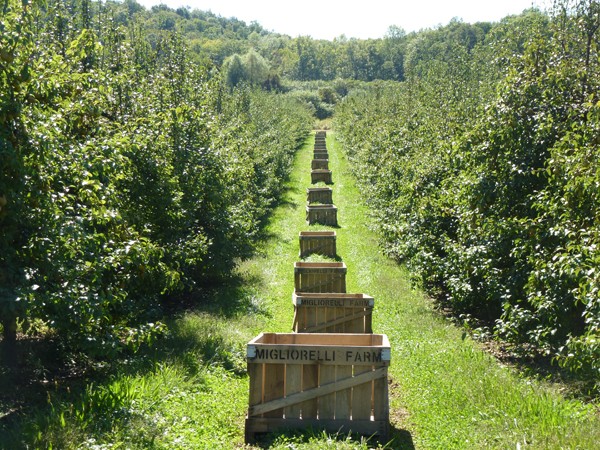
Some farms stick to one sales method only, but a mix of channels can spread out a farm’s risk, allow it to participate in the benefits of each, and create a more resilient and thriving business model. Ken Migliorelli is a third generation farmer and owner of Migliorelli Farm (a produce farm and orchard) located in Tivoli, New York. Migliorelli works with many chefs and wholesale buyers and also has a large farmers market presence.
“We see the benefits of each market segment, but they also all have their challenges,” says Migliorelli. “If you keep your end of the bargain on product quality and consistency, there is a steadiness to the wholesale relationships that can sustain over time in a way they don’t with other channels. That’s a big part of what we like about it.”
Ultimately, each farm will decide what’s right for its business. There has been a great expansion in the numbers of farmers markets and CSAs throughout the country in recent years. Because of this, wholesale has sometimes been overlooked as a potential avenue for farm sales. With a strong and still growing demand led by the nation’s chefs who seek the best ingredients possible, wholesale can be a winning sales channel, or a significant part of a mix of channels, for many farms nationwide.
Careful planning and preparation can be the difference between a good experience that fosters a thriving wholesale business and early missteps that lead to unnecessary difficulty. Many resources, including your local cooperative extension as well as your neighboring farmers, can offer guidance to those looking to get started with wholesale, or expand an existing wholesale operation, in a way that makes sense for your farm.
Resources:
Cornell Small Farms Program Baskets to Pallets Teaching Manual
http://smallfarms.cornell.edu/b2p/
FamilyFarmed Wholesale Success Manual
www.familyfarmed.org/publications/wholesalesuccess/
University of Kentucky MarketReady Producer Training Program
www.uky.edu/marketready/
FarmersWeb Guide to Working with Wholesale Buyers
www.farmersweb.com
David Ross is co-founder and CEO of FarmersWeb, online software farms use to manage their business and work with wholesale buyers such as restaurants, schools, institutions, and retail stores. David co-authored FarmersWeb’s Guide to Working with Wholesale Buyers and has presented during wholesale workshops at various farm conferences including CRAFT, NOFA – NY, and in conjunction with the Cornell Small Farms Program.


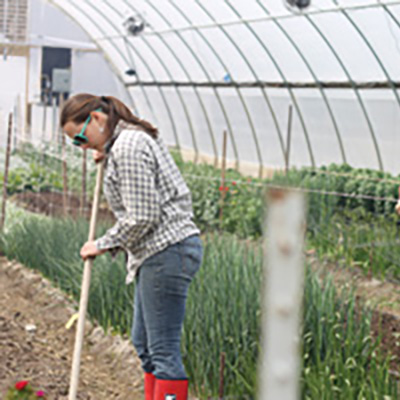
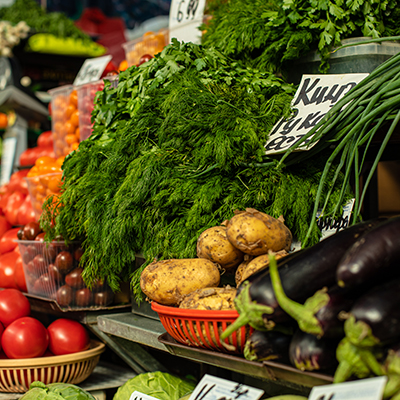
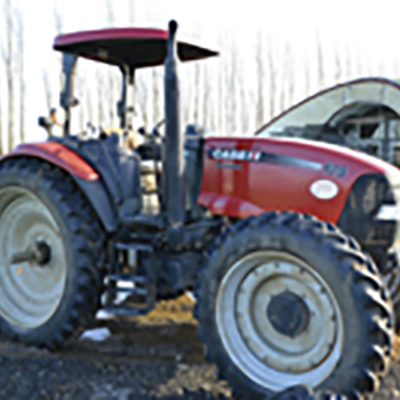
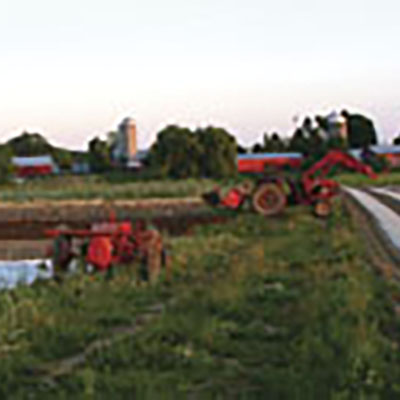



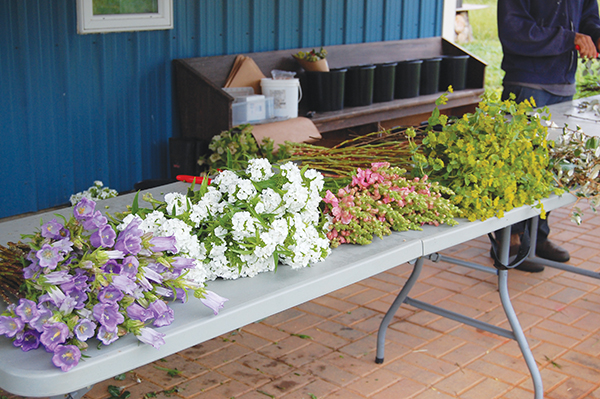 Why is the flower micro-farm best suited to a laser focus on one or two enterprises versus a balance of several? It is because of the long maturity of flower crops and the specific and conflicting demands of different types of flower enterprises. For example, some of the most common ways for farms to sell their flowers are at a farmers market, wholesale, from a flower stand/truck, a CSA, and weddings/events. These outlets can be compared on their need for similar types and quantities of flowers.
Why is the flower micro-farm best suited to a laser focus on one or two enterprises versus a balance of several? It is because of the long maturity of flower crops and the specific and conflicting demands of different types of flower enterprises. For example, some of the most common ways for farms to sell their flowers are at a farmers market, wholesale, from a flower stand/truck, a CSA, and weddings/events. These outlets can be compared on their need for similar types and quantities of flowers.
 For most established growers, the easiest place to start selling flowers will be mixed bouquets and single stem/small bunch retail sales. These are the flowers you can sell to your existing customers and they are easy to incorporate into farmers market, CSA, and grocery sales. But there are lots of other outlets out there, including florists, weddings and events, business subscriptions, value added products, and wholesalers.
For most established growers, the easiest place to start selling flowers will be mixed bouquets and single stem/small bunch retail sales. These are the flowers you can sell to your existing customers and they are easy to incorporate into farmers market, CSA, and grocery sales. But there are lots of other outlets out there, including florists, weddings and events, business subscriptions, value added products, and wholesalers.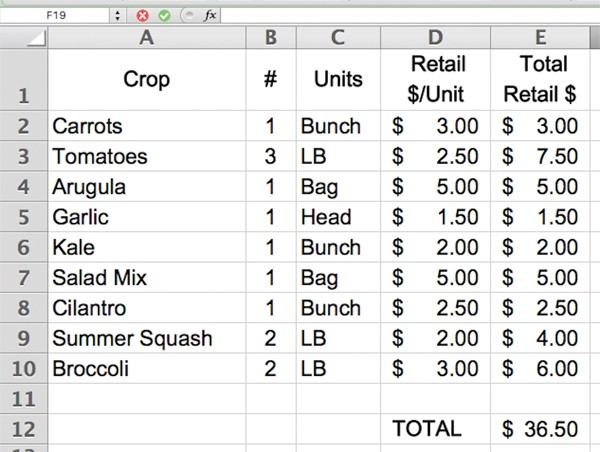 Stop recordkeeping. That’s right, put down your scribbled pencil notes, delete those apps you forget to open and drop that unfinished Excel spreadsheet in the trash. Like most things in life, more is not always better. More recordkeeping cannot lead to more knowledge and better decisions if you have incomplete data or do not turn raw numbers into useable information. It is important to start small, develop good procedures (and habits), and build from there.
Stop recordkeeping. That’s right, put down your scribbled pencil notes, delete those apps you forget to open and drop that unfinished Excel spreadsheet in the trash. Like most things in life, more is not always better. More recordkeeping cannot lead to more knowledge and better decisions if you have incomplete data or do not turn raw numbers into useable information. It is important to start small, develop good procedures (and habits), and build from there. 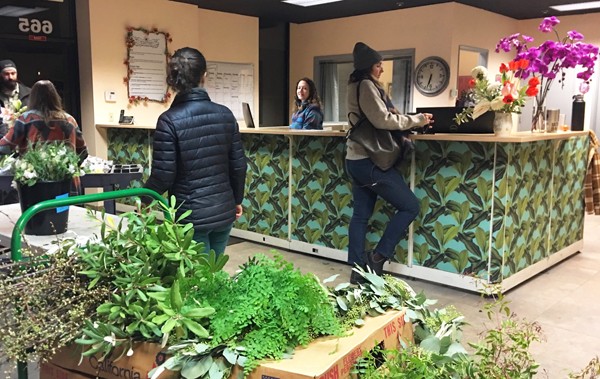 It takes courage to farm, no way around it and no matter what you farm. If you are trying to pull a living from working the land, you learn to live with risk on a daily basis, in a way that earning a regular paycheck won’t teach.
It takes courage to farm, no way around it and no matter what you farm. If you are trying to pull a living from working the land, you learn to live with risk on a daily basis, in a way that earning a regular paycheck won’t teach.